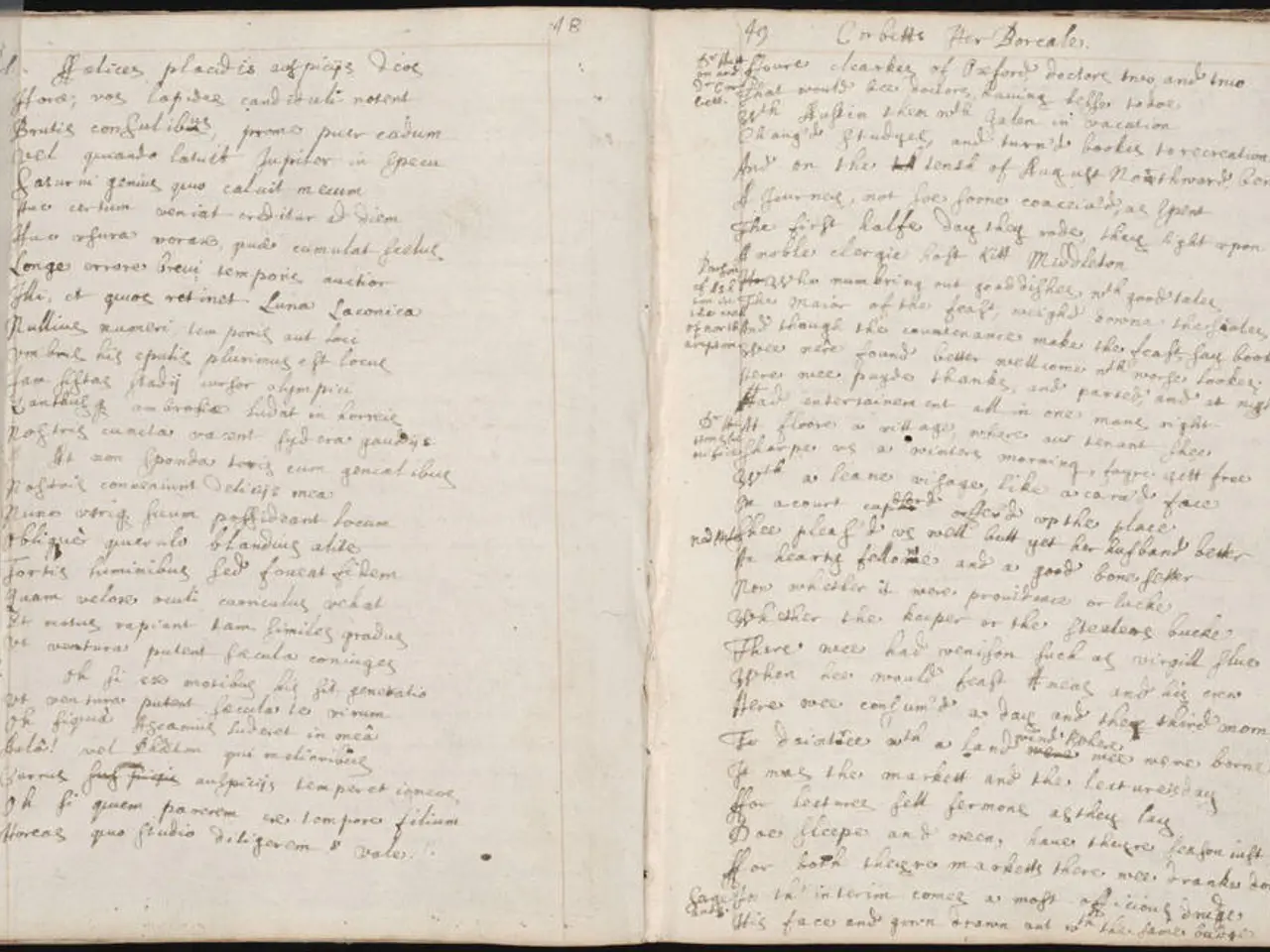Tips for Shining in Writing Workshops
In the heart of academic excellence, Princeton University offers a unique first-year writing requirement known as the Writing Seminars. These seminars, such as WRI 113 Craft of Authenticity, are designed to nurture students' abilities to write with originality and genuine voice.
The Writing Seminars at Princeton focus on developing students' writing skills through a research focus, resulting in three research papers throughout the semester. Each assignment is structured in three drafts (D1, D2, D3) and three corresponding revisions (R1, R2, R3).
One student found the seminars extremely beneficial, crediting frequent meetings with their professor for valuable suggestions on directions to take and how to make connections across sources and ideas. The resources available at Princeton, including professors and the Writing Center, were also instrumental in improving their writing.
The Writing Center is a valuable resource for students, offering assistance in talking through ideas and ensuring they are writing in a way that builds upon their arguments. The Gaipa Reading, a supplementary material, helped the student understand how to gain authority as a writer and present current scholarship to readers. It was instrumental in shifting their approach from arguments based on logic to ones fully supported by credible experts in a field.
The "piggyback" method, utilizing and building off of other authors' sources, was made possible through the Gaipa Reading. Whiteboards were also useful for brainstorming and structuring ideas during the writing process. The professor, as a key resource, provided feedback on the content of a paper outside of the feedback transition period from drafts to revision.
The Writing Seminar at Princeton combines close textual analysis, creative and experimental writing exercises, engagement with diverse, authentic experiences, and critical theoretical reflection to teach the craft of authentic writing voice. Students can rank preferences for various Writing Seminars, including WRI 116: Sustainable Futures and WRI 159: Gray Matter.
For a deeper breakdown of specific class assignments or detailed techniques, consulting Princeton’s departmental course descriptions or syllabi directly might provide more granular insight. The use of whiteboards led to a significant improvement in the student's essay structure, particularly between the R1 and R2 drafts. The R1 paper is 3-5 pages long, the R2 is 6-8 pages, and the R3 is 10-12 pages long, with increasing flexibility in essay topics and sources as the papers progress.
In conclusion, Princeton's Writing Seminars provide a comprehensive approach to teaching students how to write authentically, fostering originality, and encouraging critical thinking.
The Writing Seminars at Princeton University offer a juniors their first opportunity to write an education-and-self-development paper, utilizing the Gaipa Reading for understanding how to gain authority as a writer and the piggyback method for building off of other authors' sources. Through frequent feedback from their professor and resources like the Writing Center, students can learn, develop writing skills, and compose three research papers that progressively delve deeper into the topic, with the R3 paper being 10-12 pages long.




